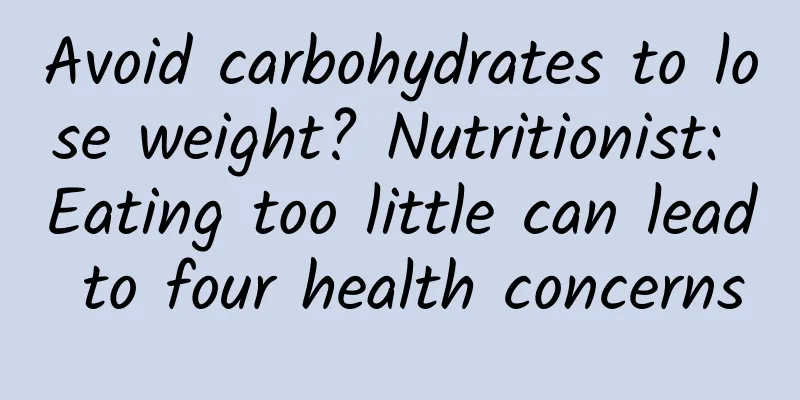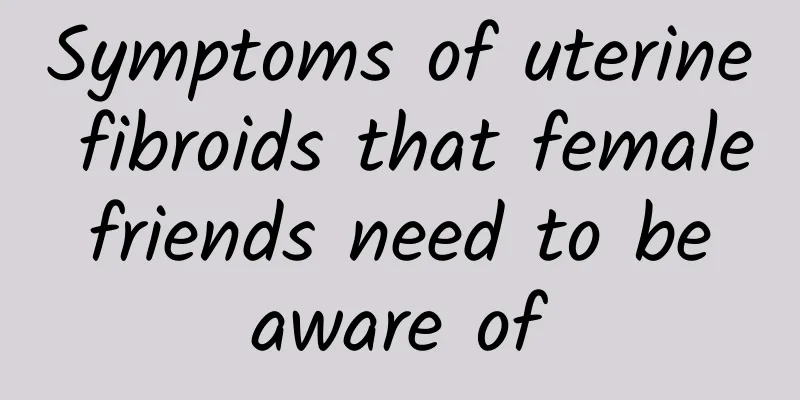Avoid carbohydrates to lose weight? Nutritionist: Eating too little can lead to four health concerns

|
Can you eat as little carbohydrates as possible? In order to lose weight, modern people often deliberately avoid carbohydrate foods. However, a recent study found that if women consume too much refined carbohydrates for a long time, it may lead to premature ovarian failure and early menopause, which undoubtedly gives people more reason to resist carbohydrate foods. But are carbohydrates really that bad? Nutritionists tell you that if you eat too little of this type of food, there may be 4 major health concerns! Easy to gain weight and cause premature ovarian failure... Can’t eat carbohydrates? The University of Leeds in the UK recently published the results of a four-year study, which found that eating more fresh legumes such as peas and green beans, and high-fat fish rich in Omega-3 fatty acids, such as salmon, sardines and mackerel, can help delay the onset of menopause; however, eating too many "refined" carbohydrates may interfere with the activity of sex hormones, increase the number of menstrual cycles, accelerate the consumption of eggs, and may bring the onset of menopause 1.5 years earlier. After this study was released, many people who were trying to lose weight, who used to shake their heads at the word "carbohydrates", became more determined not to eat starch. However, carbohydrates are one of the three major nutrients that sustain life and are not "bad things" with no benefits. On the contrary, moderate and correct intake can help lose weight and reduce the risk of chronic diseases. What is the right amount of carbohydrate intake per day? Hong Ruopu, a nutritionist at the Zhongxiao branch of Taipei Municipal United Hospital, said that carbohydrates are a "source of energy" that can be converted into glucose in the body to quickly provide the energy needed by cells. According to the 2018 new edition of the "Daily Dietary Guidelines" published by the National Health Administration, it is recommended that carbohydrates (sugars) should account for 50 to 60% of total calorie intake per person per day, with the remaining 10 to 20% being protein and 20 to 30% being lipids. 1 gram of carbohydrates contains about 4 calories. If an adult woman needs to consume at least 1,500 calories per day, she should consume 750 to 900 calories of carbohydrates per day, which is equivalent to 187.5 to 225 grams. A medium-sized potato with skin (about 148 grams) contains about 26 grams of total carbohydrates. Think about it, do you eat enough every day? Carbohydrate shortage, beware of 4 major health hazards Nutritionist Hong Ruopu reminds that whether you are trying to lose weight or not, if you refuse to eat carbohydrates for a long time and end up not consuming enough carbohydrates, you may have four major health concerns, including: 1. Ketoacidosis: Carbohydrates are the first choice for providing energy to the body. If the intake is insufficient, the body will activate the regulatory mechanism and switch to burning fat to provide energy. Although this can quickly reduce weight, it will also lead to the production of ketone bodies, which may seriously cause ketoacidosis. The "low-carbohydrate weight loss method" that is popular in the weight loss industry and the "ketogenic diet" that emphasizes extremely low carbohydrates are not suitable for everyone due to this shortcoming. 2. Poor cognitive ability: Although many office workers believe that "eating carbohydrates can easily increase blood sugar and make you drowsy while working", the problem here is "eating too much". In fact, brain cells also need glucose as energy. A study in the United States found that eating too little carbohydrates may result in insufficient glucose supply to brain cells, which may adversely affect learning, memory and thinking abilities. 3. High chance of regaining weight: Long-term insufficient carbohydrate intake for weight loss will cause one corner of the nutritional iron triangle (carbohydrates, proteins, and lipids) to be missing. Not only will it fail to achieve the mutually beneficial health-promoting effect, it will also cause fat metabolism disorders, easily leading to more fat accumulation and weight regain, and the body weight will be heavier than before the weight loss. 4. Increased risk of diabetes: Long-term insufficient carbohydrate intake will reduce insulin secretion and sensitivity, weaken the glucose degradation function, and the sugar that cannot be degraded will remain in the blood, causing blood sugar to rise, and gradually, diabetes will form. The secret to choosing the right high-quality carbohydrate foods: unrefined, high-fiber From this we can see that the problem with carbohydrates is not "whether to eat or not", but "how to eat"! In addition to paying attention to the "quantity" mentioned at the beginning, the next thing is to choose high-quality carbohydrate foods. Nutritionist Hong Ruopu said that carbohydrate foods can be roughly divided into two categories: "sugar" and "starch". There are many foods that contain sugar, from processed candies and biscuits to natural foods such as fruits, vegetables and milk. People should choose natural foods rather than processed refined sugars. As for starchy foods, it is recommended to choose unrefined whole grains with more fiber, such as brown rice, whole wheat products, oats, corn, sweet potatoes, potatoes, etc.; avoid consuming refined starchy foods that have been excessively removed of fiber, such as white rice, white bread, white toast, noodles, etc. Carbohydrates that retain more fiber, in addition to meeting the body's basic needs for carbohydrates, are also rich in fiber and can increase satiety, slow down blood sugar rise, help with weight loss, promote intestinal health, prevent colorectal cancer, and reduce the risk of cardiovascular disease and diabetes! |
>>: Breakfast nutrition triangle: protein, fiber, and carbohydrates are essential
Recommend
Physical therapy for cervical erosion
Physical therapy for cervical erosion: Cervical e...
Laparoscopy is a very effective method for detecting ectopic pregnancy.
Ectopic pregnancy is a very common disease, so it...
Hyperprolactinemia can cause back pain symptoms
Will hyperprolactinemia cause symptoms of back pa...
What causes uterine fibroids? Can bad sex life induce uterine fibroids?
Uterine fibroids are caused by gynecological dise...
Causes of postmenopausal lower left abdominal pain
Postmenopausal dull pain in the lower left abdome...
How long after hysteroscopy can I get pregnant? Pregnancy after six months
Hysteroscopy and laparoscopy are a very common ut...
Potato weight loss new tool: cook it, freeze it and then eat it.
Who would have thought that a small potato could ...
Complete cure of vulvar pruritus
Whether vulvar pruritus can be completely cured i...
Only 5 minutes per session! The secret of face slimming performed by a female traditional Chinese medicine practitioner every day
Every time you take a photo, you have to hide beh...
Office workers who have picky eating habits are prone to edema! Nutritionist Chen Yijuan: 3 types of water-draining diets to fight edema-type obesity
Are you also suffering from edema? Office workers...
Perfect match! Eating pork with raw garlic, nutritionist: The surprising secret is...
If the food is well matched, the nutrition will b...
Four possible causes of pelvic inflammatory disease
Experts say that women are very likely to suffer ...
Let’s find out together: Are multiple ovarian cysts serious?
Multiple ovarian cysts are a type of ovarian cyst...
What a big misunderstanding! Liposuction does not mean weight loss
Text/Qiu Zhenghong (Plastic Surgeon) Liposuction ...
Break the myth of gaining weight in winter: exercise in cold weather can help burn fat
Whenever winter comes, most people always worry a...









